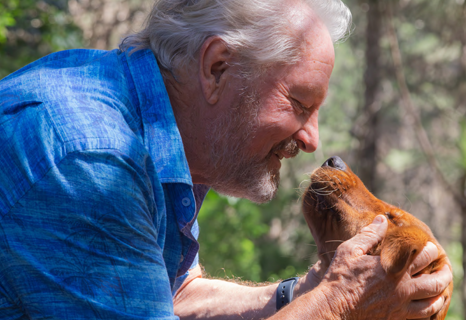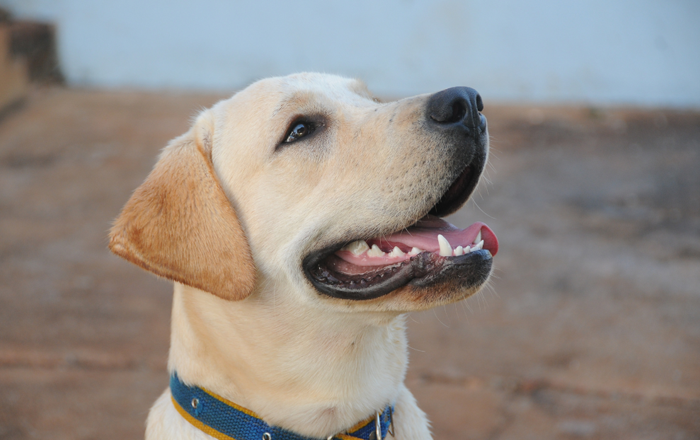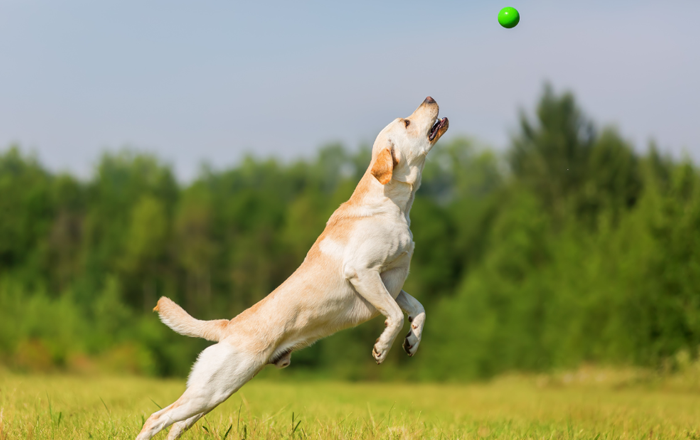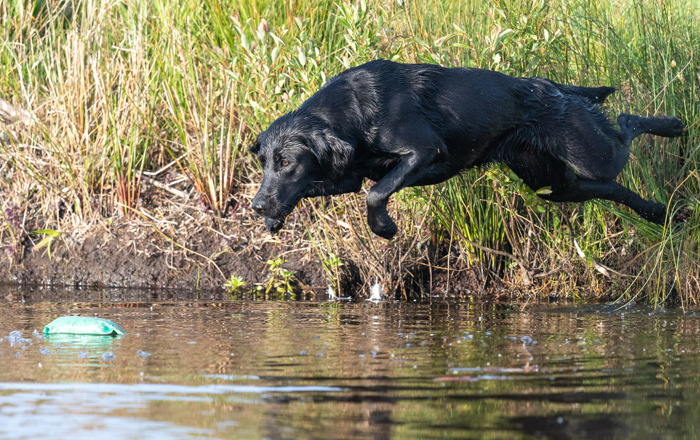They’re one of New Zealand’s most popular breeds, and it’s no surprise - there is so much to love about the reliable, family-friendly Labradors! In this article, Mark Vette shares his guide to Labradors, including their characteristics and potential behavioural challenges.
Origins of the Labrador
The Labrador Retriever was originally the St. John’s Water Dog, bred out of Newfoundland in Canada some 500 years ago to help in the fisheries, where they would haul nets and long lines, dive for cod that slipped off the hook and even retrieve the hats of fishermen! They were later used by duck hunters to retrieve birds
Labrador traits to love
With these early origins, Labradors are bred to be energetic and people-pleasing with a soft mouth (must be gentle when retrieving delicate fish or ducks!), as well as stable and confident to be able to cope with gunshots and obstacles in the water etc. This is part of what makes them such an excellent family pet.
In their hunting origins, they needed to be willing to follow a hunter’s commands from a distance while locating a downed bird. They are intelligent with a strong work ethic, and very willing to work for their favourite humans. This is why you’ll find labradors performing many important jobs such as being guide dogs for the blind or detecting explosives and illicit drugs - but even as family pets they are highly trainable and responsive. They have been selectively bred for cooperatively and collaborative communication.

Mark Vette is a world-renowned Animal Behaviourist, Zoologist and Trainer. He brings together a unique combination of academic studies with 40 years of applied clinical animal behaviour consulting and treatment. Mark is a member of the International Association of Animal Behaviour Consultants. This article was written by Mark and the views expressed are his own.

In general, labradors can be:
- People-oriented
- Friendly
- Sociable
- Loyal
- Intelligent
- Easy to train
- Playful (especially retrieve games like fetch!)
- Confident and outgoing
- Tolerant
- Highly food oriented (sometimes obsessed!)
- Strong and sturdy
- Exuberant and energetic
- Excellent swimmers
Along with their sociability, their confidence and ability to handle whatever life throws at them makes them very stable and easy family pets.
Potential challenges with Labradors
Like all dog breeds, there are breed dispositions that make Labradors more prone to certain behavioural challenges. Here are some to be aware of:
Over-exuberance
Because they are so social and lively, this can present as boisterous behaviours like pulling, jumping and being overexcited to greet others. Being big, heavy dogs, this can be challenging so if getting a Lab, invest plenty of time in training them to be calm! Always wait until they are sitting or at least have four feet on the ground before patting and giving your love and attention to prevent jumping up.


Mouthing
Because they are bred to be retrievers, they love to use their mouths! The good news is that they’re typically gentle (soft-mouthed in order to protect the delicate birds they’re charged with collecting) and won’t typically bite or nip hard beyond early puppyhood, but they can be mouthy when meeting people, using their mouths to engage with peoples’ hands excessively.
You can use a “leave it” command or instead teach them a “touch” command as an alternative way to engage with people’s hands when meeting them. Or you can give them a toy to hold when greeting people - they love to have a toy to carry around in their mouth as they just naturally love to retrieve and carry things, and it can prevent inappropriate mouthing at times.
Hyperphagia (excessive hunger)
Labradors typically have an abnormally strong, incessant appetite and can put on excessive weight easily. This is linked to a gene mutation related to the POMC gene, which means they don’t seem to realise when they are full, so never feel satiated and will continue to look for food.
This can result in behaviours like stealing food, scavenging from rubbish bins, seeking out food in inappropriate places or eating dangerous items. This behaviour is particularly dangerous as Labs may steal dangerous human foods like chocolate or cooked chicken bones or they may consume inedible items like socks or packaging that food came in - both of which can result in serious outcomes or emergency surgery.
If you have a Labrador at home, it’s essential to keep any human foods and rubbish bins well out of reach, to teach a really effective “leave it” command and to do training that teaches your dog what they are and aren’t allowed to eat or chew.
You’ll also need to monitor their diet carefully to ensure they don’t put on excessive weight - they are very unlikely to self-regulate!


Exercise and trainability
Labs are an active breed and need a moderate-high amount of exercise, around 1-2 hours per day. They are highly trainable and responsive to their owners, and their food drive certainly helps with this! They are generally easy enough to manage if they’re getting enough exercise and stimulation, and you invest some effort into early training.
Games
Give Labradors lots of toys to chew and opportunity for retrieve games! They love to fetch, and using tug toys is a great way to prevent mouthiness - especially if you understand it is mock prey. They are social creatures so provide plenty of opportunity for interactive play - both with family members and other dogs. They also typically love water, so include swims as part of their exercise and play routine, it’s very easy on the joints too! Paddling pools and sprinkler play are often also loved by Labs.

The final verdict
Labradors make an excellent all-around family pet, especially if you get them as a puppy and train them right!
I also like cross-breeds that include Labrador in the mix, to give that family-oriented nature and trainability (keeping in mind that of course, as with all dogs, it also comes down to their training and socialisation, doing the right thing at the right time when they are a puppy).
They’re big goofs and gluttons for food and love! They'll give as good as you give (plus 20%!). Their brains seem directly attached to their stomachs, so they’ll do anything for food (part of what makes them so trainable!). They love their family, but don’t tend to be overdependent and are typically resilient characters.
All in all, it’s a thumbs up from me.
Always consult your vet on the best way to look after your pet. And to avoid unexpected costs, make sure your pet is insured.
Have a look at our pet insurance plans to choose the right insurance plan for your pet.
